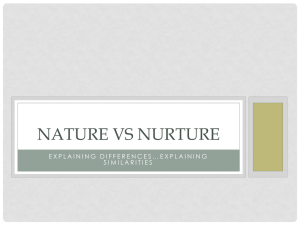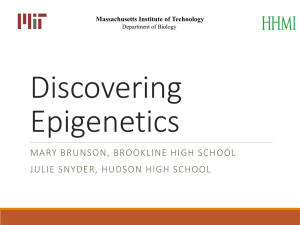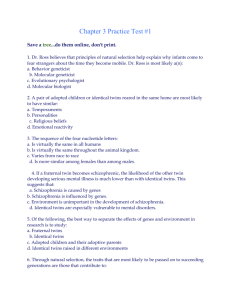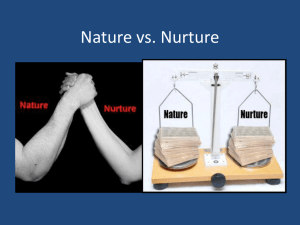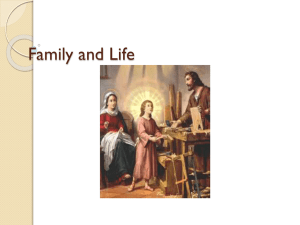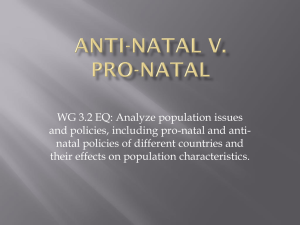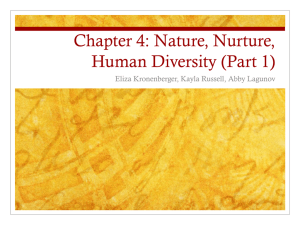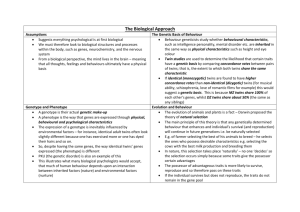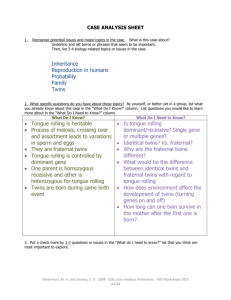A Closer Look at Conception
advertisement
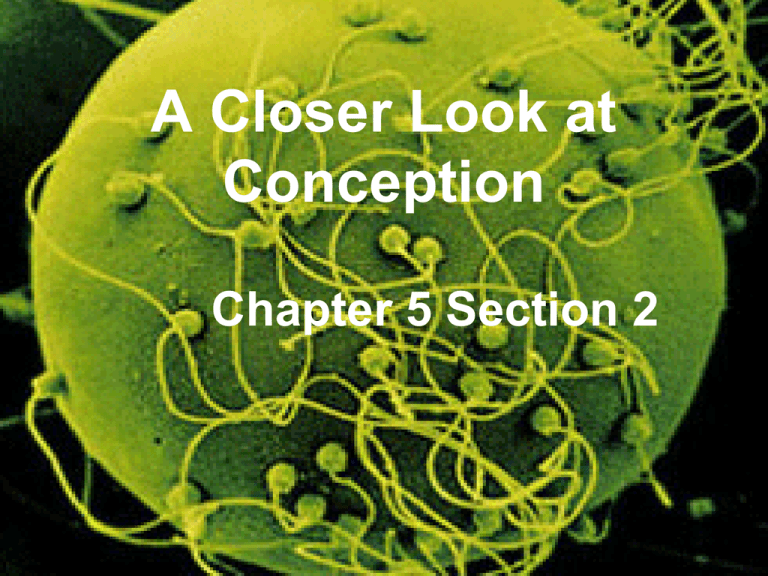
A Closer Look at Conception Chapter 5 Section 2 The Genetic Package • Chromosomes- tiny threadlike particles in the nucleus of every cell. • Come in 23 pairs (babies receive 46) • Genes- units that determine the child’s inherited characteristics. (genes make up chromosomes as beads make up a necklace) Dominant and Recessive Genes • Dominant genesstronger genes (Brown hair or brown eyes) • Recessive genesweaker gene (Blonde hair or blue eyes) Multiple Births • When cells continue to divide and grow into separate embryos! • Identical Twins • Fraternal Twins • About 2.5% births are twin births in the United States (fraternal twins occur three times more often) • Babies are more likely to be premature • Mother is more likely to experience excessive bleeding Infertility • Infertility- the inability to become pregnant • Surgery or medication may solve the problem • Fertility drugs- help stimulate a woman’s ovaries to release eggs • Fertility drugs may cause serious side effects (lung problems, abdominal pain, diarrhea etc..) and increase the chances of multiple birth Options for Infertile Couples 1. Adoption 2. Artificial Insemination a doctor injects sperm into a woman’s uterus with a special needle. It can come from the husband or a donor Options for Infertile Couples • In vitro fertilizationthis process is used when a woman has damaged fallopian tubes that prevent pregnancy. In a small glass dish the doctor combines a mature egg from the woman and sperm from her husband. If fertilization takes place the doctor places the zygote in the woman’s uterus Options for Infertile Couples • Ovum transfer- procedure uses an egg taken from a female donor and in vitro fertilization. It may be used by women who lack working ovaries or who have inherited disorders • Surrogate mother- mother is a woman who becomes pregnant for another couple. She may carry a couples fertilized egg. Do you think these practices raise many ethical questions?
